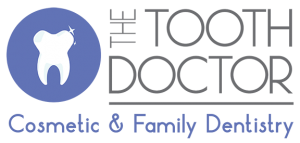Dental Nutrition: The Importance of How the Food You Eat Affects Your Teeth
Your mouth, teeth, and gums are more than just tools for eating. They are essential for chewing and swallowing—the first steps in the digestion process. Your mouth is your body’s initial point of contact with the nutrients you consume.
According to nutrition experts at the American Dental Association (ADA), the food you choose to eat impacts not only your general health but also your teeth and gums. In fact, if your nutrition is poor, the first signs of bad health often show up in your mouth.
The foods you eat and the beverages you drink have a direct influence on the incidence and progression of tooth decay, depending upon:
1. The form of the food—whether it is liquid, solid, sticky or slow to dissolve makes a difference.
2. The nutritional makeup of the food.
3. The combination of the foods you eat and the order in which you eat them.
4. Medical conditions such as gastrointestinal reflux and eating disorders, which may increase risk of cavities and weaken teeth.
For good dental health, it’s recommended that people limit eating and drinking between meals as much as possible. Empty calorie foods such as candy, cookies, cakes, muffins, and snack foods are a cause for dental concern, not only because they offer no nutritional value, but because the amount and type of sugar that they contain that can stick and stay on your teeth. The bacteria in your mouth feed off these sugars, releasing acids, leading to tooth decay.
Sugar-rich drinks—soda, lemonade, juice and sweetened coffee or tea—are particularly harmful because sipping them causes a constant sugar bath over teeth, promoting tooth decay. Water is always the most tooth-friendly beverage.
Nutritious, acidic foods like tomatoes and citrus fruits can have acidic effects on tooth enamel, too, so eat them as part of a meal, not by themselves. Dried fruits, including raisins, are also good choices for a healthy diet, but since they are sticky and adhere to teeth, the plaque acids that they produce continue to harm teeth long after you stop eating them. Instead, a piece of fresh fruit is a better choice.
Cheese, milk, plain yogurt, tofu, leafy greens and almonds, are foods that may benefit tooth health thanks to their high amounts of calcium and other nutrients they provide. Protein-rich foods like meat, poultry, fish, milk and eggs are the best sources of phosphorus. Both of these minerals play a critical role in dental health, by protecting and rebuilding tooth enamel.
Fruits and vegetables are good choices for a healthy smile since they are high in water and fiber, which balance the sugars they contain and help to clean the teeth. These foods also help stimulate saliva production, which washes harmful acids and food particles away from teeth and helps neutralize acid, protecting teeth from decay. Plus, many contain vitamin C (important for healthy gums and quick healing of wounds) and vitamin A (another key nutrient in building tooth enamel).
For more information on foods that will help your smile, read the full article at https://www.mouthhealthy.org/en/nutrition/food-tips
Contact The Tooth Doctor with any questions about healthy dental nutrition.

